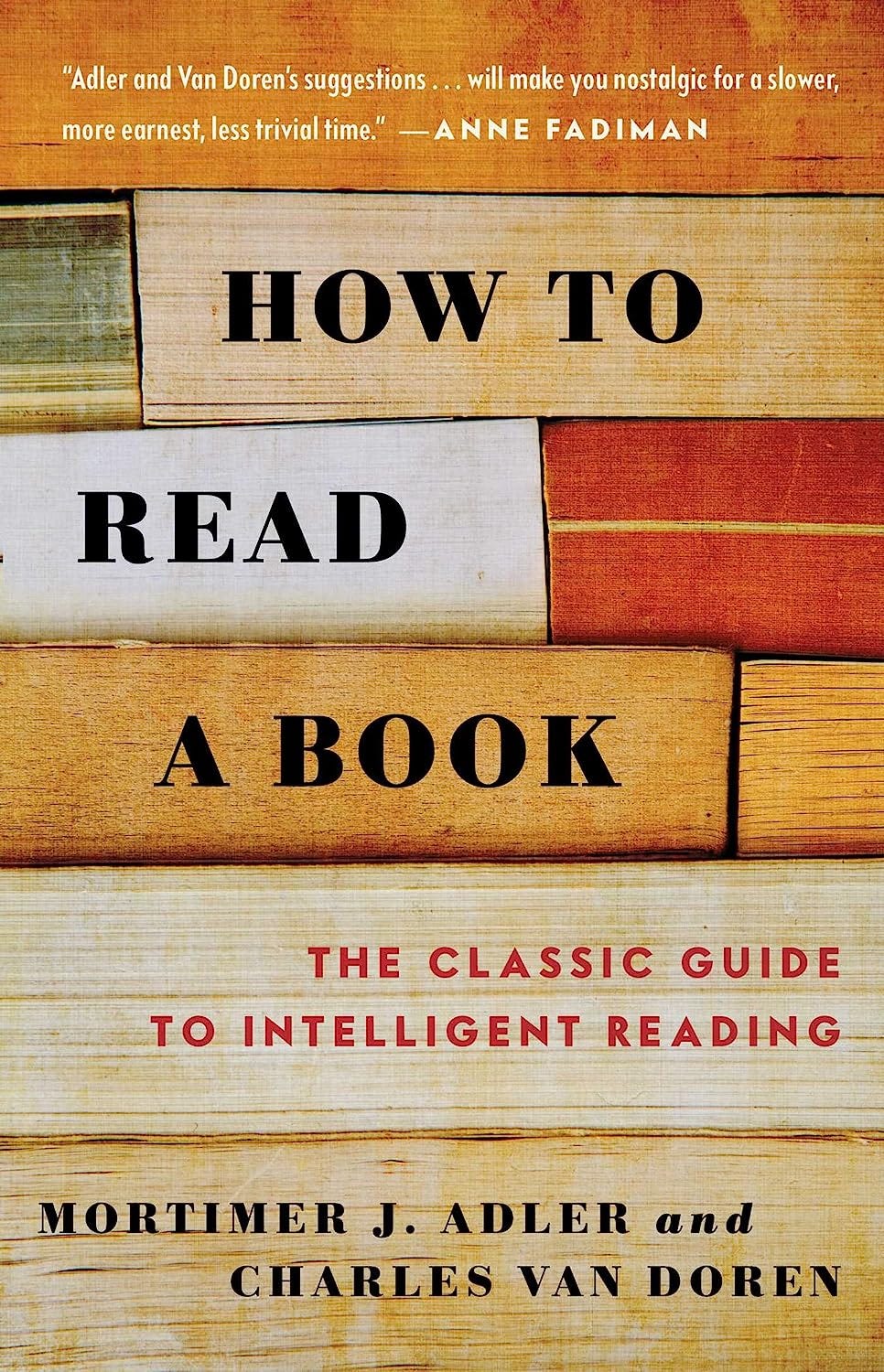How to Read a Book, Chapter 6
Chapter 6: Pigeonholing a Book
The first step and Rule #1, Adler an Van Doren said, was "You must know what kind of book you are reading." I have to admit, this seems a bit obvious. Although they make a sort-of snarky comment about how there's too much sociology in contemporary novels like Main Street, I don't think there's much danger that people are going to mistake a novel about a woman trying to use social science to remake a Minnesota town for a sociology monograph like Middletown, despite the bland titles. Nor do I think readers could mistake the science fiction of Robert Heinlein or Arthur C. Clarke for actual physics. Clarke's famous claim that "any sufficiently advanced science is indistinguishable from magic" certainly works better in fiction than in real life. Maybe there’s a danger that people will believe they’re getting a complete understanding of sociology when they read Sinclair Lewis’ novel, or of quantum mechanics when they read Heinlein’s The Cat Who Walks Through Walls when in fact they might be getting a small subset of the actual science or even a fictional extrapolation of science that supports the novel’s plot. But it may also be true that the Rome depicted by Mark Helprin in Soldier of the Great War is not the REAL Rome.
It gets a bit more complicated, perhaps, when the form of a book is explicitly narrative, as are most histories. Even so, I think most readers are able to distinguish a narrative that cites sources to corroborate its story from a fiction. But maybe they are less careful with what the authors call "expository" books. Plenty of writers confidently make declarative statements that may be dubious or even blatantly false. Nowadays people seem to have been trained to believe experts and pundits who offer analysis and explanations on the news, although perhaps that trust has been so egregiously violated over the last couple of years that we will be much more skeptical going forward (at least we can hope so).
Adler and Van Doren advise their readers to read book titles carefully and understand what they mean. Again, this seems like fairly simplistic advice; although I do take their point that if you believed the title of Darwin's book was Origin of THE Species you might make the mistake of thinking it explained specifically how humans evolved. When a title doesn't provide enough information for the reader to understand what it's about (City of God was always a bit perplexing to me), "a careful perusal of...chapter headings" is a good way to move from inspection to analytical reading.
The authors spend a lot of effort making a distinction between "Theoretical" and "Practical" books, which they mention can be thought of as science and technology. One is directed at describing "*what is the case*" and the other focuses on "*what to do about it if we wish to get somewhere*". So in this sense, anything that relates to practice, including normative philosophical material like Kant's Critique of Practical Reason, would be practical. They admit that some books will be a combination of the two and that a single subject such as economics could be treated in a theoretical or a practical way.
The first type of theoretical book Adler and Van Doren mention is history, which they describe as narration accompanied by commentary or insight on the significance of the events. They mention that history is "chronotopic" (from Greek roots meaning time and place), which they distinguish from science, which is not concerned with particular events but with generalizable occurrences. They continue to suggest that if a book describes events that one would need to reproduce and observe, it's science; but if it describes things that a person could understand by reflecting on their own life, it's probably philosophy. This is an interesting distinction that hadn't occurred to me. They use it to call Locke's Essay Concerning Human Understanding philosophy but Freud's writing mostly scientific. William James, they say, "took an interesting middle course. He reports many examples of the special experience that only the careful, trained observer can know about, but he also frequently asks the reader to judge whether what is being said is not true from his own experience."
The point of distinguishing all these differences, the authors say, is that scientists and philosophers think somewhat differently. Historians are even more distinct in the ways they argue and interpret facts. The methods different teachers use, they say, would be immediately apparent if you walked into a classroom and began listening. The same should be happening when we read. I'm not 100% convinced they make the case why this particular element of inspection is so important. But I'm willing to concede that feeling may be because I have a hard time imagining this process of understanding what type of book I've opened as not being fairly automatic. Different genre's of writing do approach evidence, argument, narrative, and truth claims in different ways. But so do authors within a particular genre. I think it's fair to say that all good authors have a "truth" they are trying to communicate. It's up to the reader to understand what type of truth that is, how the author is trying to get their point across, and whether the reader thinks the author has succeeded or failed in that effort. It's also possible the reader may encounter additional truths that may not have been the author's priorities. Reading Galileo today might tell us more about the man who pursued science despite persecution than about the particular things he discovered.




